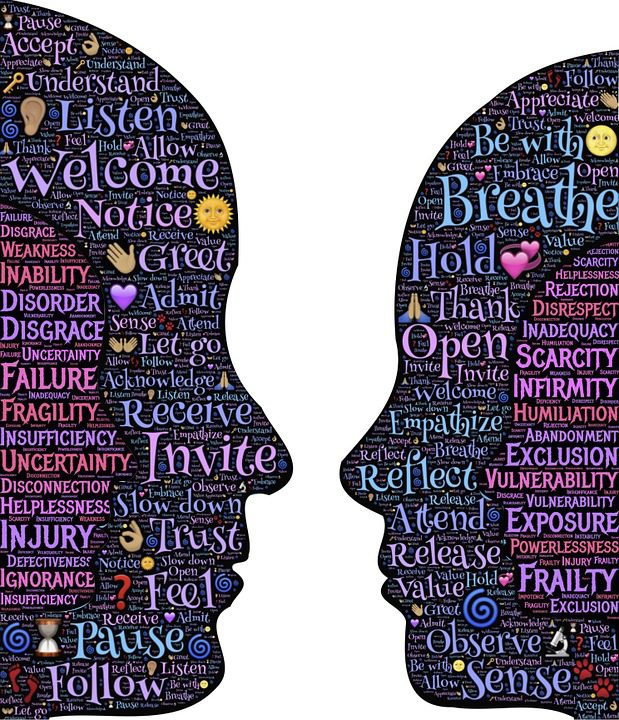
Over the past few months, I’ve been thinking a lot about relationships, specifically those of the romantic variety. Naturally, this has forced me to consider the relationship I have with my wife Lyndsay, which has led to some great conversations here at the Distefano house. And while I don’t typically discuss these sorts of things on this blog, I wanted to open up with y’all and share some of my most recent thoughts on the matter.
The first thing I want to say is that marriage is hard. It’s a lot of work. That probably goes without saying. You know what, though? Life is hard. Life is a lot of work. These aren’t necessarily bad things. Some of the greatest accomplishments we ever make in life are the fruits of hard work, long hours, and a good deal of blood, sweat, and tears. My marriage is no exception.
My wife and I have been married for over 14 years now, and we have not been without our struggles. We aren’t some sort of exception to the rule, however; I’m certain every married couple has had their issues and, if they’re being honest, probably still have some. The truth of the matter is that none of us are perfect. We’ve all brought baggage into our relationships. We’ve all brought our traumas, our insecurities, our pain, into our present life situations. This can be detrimental if it is never addressed.
That is why vulnerability and grace are both vital if a relationship is going to not only survive but also thrive. Is this risky? Sure. If, for example, one partner is open and honest while the other is closed off, then there is great risk—risk of resentment, even risk for manipulation and abuse. The key, then, is that both partners (or, if you are polyamorous, all partners) approach things as openly and vulnerably as possible. That is to say, each member of the relationship needs to do the hard work of going to the deepest, darkest places of their being so that it can be brought out to the light. Again, this is hard work, takes great trust, and is not often something we are too keen about doing. But where there is great risk, there is often great reward.
Take, for instance, a recent breakthrough my wife and I have had. In a recent chat about emotional and physical needs, it dawned on me that much of the anxiety and insecurity I brought into our relationship is a direct result of being abandoned by my father when I was a boy. In my mind, if my dad could leave me—and, on top of that, blame me for the whole thing—then why wouldn’t my spouse one day do the same? Obvious projection, right? Well, without the desire to go to those deep-seeded traumas that reside at the core of my being, I would have never acknowledged such a thing. But now that I have, there is a great opportunity to change it. As I’ve said somewhere before—I just can’t recall where—without a proper diagnosis, there is no way to properly treat a disease. In the same way, without addressing where my insecurity and anxiety were coming from, I could never see that the mistrust I had was simply unfair projection.
The second thing I want to emphasize is that in all successful relationships, there needs to be grace. There is no such thing as a perfect person, nor a perfect relationship. If there are any perfect relationships, then it is only by realizing their imperfection that they can be called perfect. It’s like the Zen Buddhist approach to achieving nirvana. Instead of grasping at enlightenment, they realize that to grasp is to already miss the point. In other words, those who experience nirvana can only do so by not trying to experience nirvana. It’s paradoxical, but it seems true nonetheless.
That said, realizing how much “stuff” we all carry around with us and then having grace for others in spite of their shortcomings is an extremely liberating notion. Now that my wife and I have both accepted our own bullshit, the need to judge is gone. The need to hide things about our past or the gunk that runs through our traumatized heads is gone because in all things there is grace. This grace, then, gives us the freedom to actually spend our time on better things: loving and serving one another whenever and wherever possible, for instance. And when this happens, it’s pure joy. Unadulterated bliss. Honestly, nothing has brought me greater contentment than to devote myself freely, in love, to serving another human being without fear of judgment and condemnation. I haven’t always done this, of course, but when I have, I’ve not once regretted it.
Now, with that said, I know there are many relationships out there that are on the brink of total failure. The divorce rate in this country is staggering, but so too is the rate of marriages where either one or all members are utterly unhappy and unfulfilled. This is tragic and it breaks my heart. What I think needs to happen, then, among other things, is that these folks need to start getting really honest with themselves and their significant others, start showing themselves to be trustworthy compatriots, and live out of a place of vulnerability and grace. It’s worked for my wife and I, and although it’s not some end-all-be-all solution to every difficulty that occurs in relationships, I think it’s a good starting place.
Peace.

















